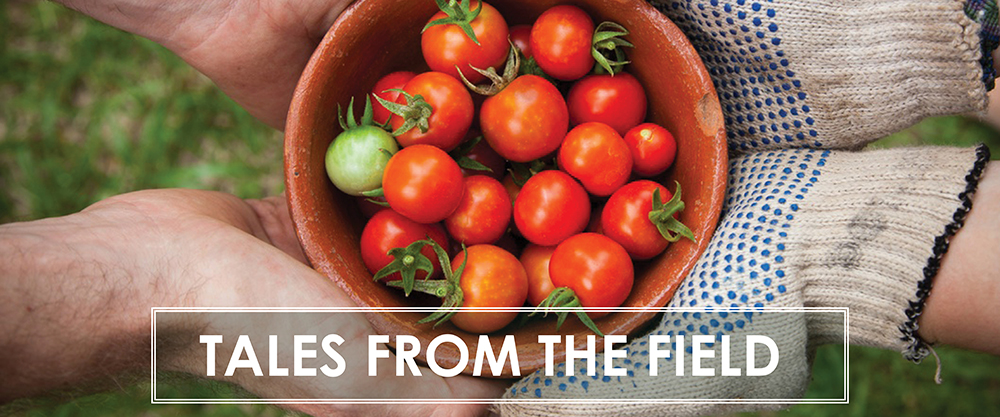“Yes, we serve food, but we’re also an educational setting. We take time to teach kids about food,” – Vince Caguin, Director of Nutrition Services and Warehousing for the Natomas Unified School District
Natomas Unified School District (NUSD) is a mid-size school district located north of downtown Sacramento. Named as the second most diverse school district in the nation in a 2016 New York Times study, NUSD serves 15,000 students across 20 school sites, of whom approximately 51% qualify for free and reduced-price meals. Declared “America’s Farm to Fork Capital” by former Sacramento Mayor Kevin Johnson, the Sacramento region has a rich agricultural heritage and an abundance of locally grown specialty crops. Vince Caguin, Director of Nutrition Services and Warehousing for NUSD, embraces the region’s farm to fork identity and is working to bring this abundance of local fruits and vegetables to NUSD students through farm to school efforts.
Caguin and his staff in the NUSD Nutrition Services Department have worked diligently to bring local specialty crops into their cafeterias. By cultivating relationships with local farmers including Fiery Ginger Farm, Vierra Farms, Cloverleaf Farm and Wild River, just to name a few, NUSD is now able to source 35% of its procurement locally. These farmer relationships enable NUSD to feature seasonal produce like peaches, blackberries, citrus and kiwi at the peak of freshness. Jennifer Orosco, Supervisor of Nutrition Services and Warehousing, said NUSD has expanded to include salad bars at all school sites and, as a result, has seen an increase in the amount of fruits and vegetables that are being consumed by the students. Orosco said this year marks the first time NUSD has been able to source 100% of the lettuce for its salad bars from a local grower.
In addition to supporting local procurement and specialty crops in school meals, Caguin and his staff are working to support experiential learning and nutrition education for NUSD students. NUSD partners with local farmers to participate in assemblies at schools, as well as to take students on farm tour field trips so they can see firsthand how specialty crops are grown. In addition, two NUSD sites have school gardens, one of which is incorporating the garden into the classroom curriculum and hosting monthly cooking demonstrations for families. To celebrate National Farm to School Month in October, NUSD hosts free farmers markets for students and parents, with the help of donated produce and a USDA farm to school implementation grant. NUSD also participates in programs like California Thursdays in partnership with the Center for Ecoliteracy, and the California Crunch in partnership with the Community Alliance with Family Farmers.
By supporting local procurement, nutrition education and experiential learning, NUSD is seeing positive impacts for both students and the district as a whole. Caguin has observed student willingness to try new things increase over the seven years he’s been with the district. Although it takes a few tries, the students become accustomed to and begin to enjoy trying new things. Caguin said NUSD’s meal participation increased from 1.1 million meals in the 2012-13 school year to 1.8 million meals in 2017-18, outpacing district growth. Seven years ago, NUSD was in a deficit; its operating budget has since increased from around $2.5 million to $5.5 million, which Caguin said is due in large part to increased meal participation.
When asked what advice he has for other districts, Caguin said he believes the quality of meal programs has a direct relationship with participation and revenue. Caguin also notes that an important part of NUSD’s success has been ensuring support for his staff, including farm tours and other professional development activities. This staff support has helped reinforce Caguin’s mission to establish a culture of serving good food. The additional time spent building relationships with local farmers, serving 17 items on salad bars, roasting carrots and broccoli, and countless other activities has been well worth it, Caguin said, because of the benefits for students.
To see more of what NUSD is serving up, follow them on Instagram at @nusdfood.
Stay tuned for more specialty crop school success stories in the coming weeks.
– CDFA Farm to Fork Staff
